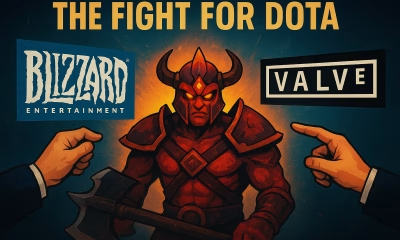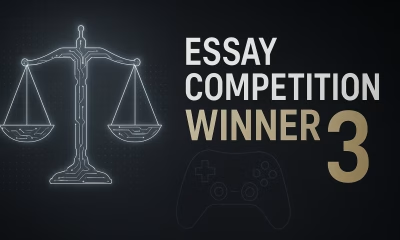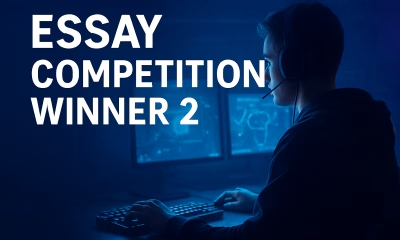Gambling
The Dark Side of Esports: Jailed for Match-fixing
The burgeoning world of esports, while offering a plethora of opportunities and entertainment, is not without its dark underbelly. The recent legal proceedings against two professional esports players in Singapore have brought to light the grave consequences of corruption and gambling within the industry. This article delves into the legal repercussions faced by Tan Shern Ryan and Chung Wai Kiat Malcolm, who were charged with corruption and gambling offences, and explores Singapore’s stringent legal stance against such activities.

The Case at a Glance
On 5 August 2022, Tan Shern Ryan (20) and Chung Wai Kiat Malcolm (24), both Singaporean esports professionals, were charged for their alleged involvement in corruption and gambling offences. The charges stem from an incident that occurred on 22 September 2020, where Tan purportedly promised gratification to Chung to manipulate the outcome of an esports match between Resurgence and Blackbird Ignis, competing in the EPULZE Royal SEA Cup tournament, a part of the Valorant Ignition Series.
Legal Framework and Charges
Tan and Chung were charged under Sections 5(b)(i) and 5(a)(i) of the Prevention of Corruption Act, respectively, for their involvement in the match-fixing scandal. Additionally, they faced charges under Section 8(1) of the Remote Gambling Act 2014, highlighting the serious legal consequences of engaging in illicit gambling activities.
Singapore maintains a stringent zero-tolerance policy towards corruption, with the Corrupt Practices Investigation Bureau (CPIB) actively pursuing stern action against parties involved in bribery and match-fixing. The penalties for corruption offences can be severe, with fines up to SGD 100,000, imprisonment of up to five years, or both. Unlawful gambling can result in fines up to SGD 5,000, imprisonment of up to six months, or both.
The Unraveling of the Scandal
Chung, an active online gamer and a representative of RSG Resurgence Esports in tournaments, was sentenced to four months’ jail for corruption after deliberately underperforming in the tournament match, thereby securing SGD 7,019 via an unlawful remote gambling service. His accomplice, Tan, was ordered to undergo reformative training for at least six months after admitting to a corruption charge.
The duo, acquainted since 2014, concocted the plan after Tan borrowed USD 1,000 from Chung to fuel his gambling habit and subsequently failed to repay the debt. The scheme involved Chung throwing the match and placing bets on his own team’s loss, using money loaned from Tan’s brother. The winnings were then divided among the parties involved.
Implications and Industry Repercussions
The incident has not only tarnished the reputations of the individuals involved but also cast a shadow over the esports industry, raising questions about the integrity of esports tournaments. The case underscores the necessity for stringent regulations and oversight within the esports industry to safeguard its integrity and ensure fair play.
Conclusion
The legal proceedings against Tan and Chung serve as a stark reminder of the potential pitfalls within the esports industry and the stringent legal consequences of engaging in corruption and gambling. As the esports industry continues to flourish, it is imperative to establish robust regulatory frameworks and ethical guidelines to mitigate such incidents in the future and uphold the integrity of the competitive gaming world.
Via CPIB
Image: KELVIN CHNG/The Straits Times/ANN


















